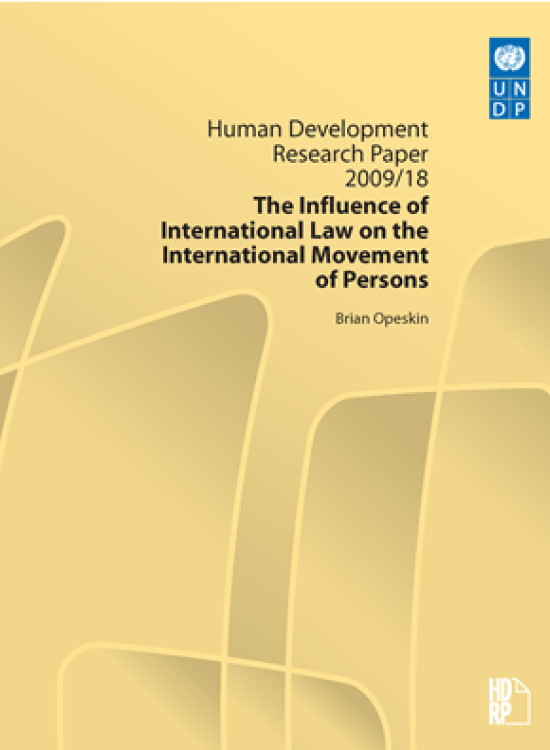The Influence of International Law on the International Movement of Persons

Download Report by Language
Document
hdrp200918.pdf
(731.39 KB)
Citation
Opeskin, Brian. 2009. The Influence of International Law on the International Movement of Persons. New York.
The Influence of International Law on the International Movement of Persons
Posted on: January 01, 2009
Many migration theories identify ‘the law’ as a significant constraint on the international movement of persons. While this constraint often operates through national migration legislation, this study examines the influence of international law in shaping contemporary patterns in the international movement of persons at the macro level. The analysis begins with an examination of the long-established power of a State to regulate cross-border movement of persons as an inherent attribute of State sovereignty, together with the accepted limitations on a State’s power to control entry and exit. Yet, international law reaches well beyond the movement of people across borders. The development of international human rights law has been a key constraint on state action in the United Nations era by also regulating the treatment of migrants within a State’s borders. The study considers how international law has responded to current migration issues, including: protection of migrant women and children; suppression of smuggling and trafficking of people; labour migration; and environmental migration. As in other areas of international society, there has been a proliferation of institutions through which international migration law is made and enforced. The most prominent among them are the United Nations High Commissioner for Refugees (UNHCR) and the International Organization for Migration (IOM), but the establishment of other entities with overlapping mandates has given rise to calls for a new international migration regime based on streamlined institutional arrangements. The study concludes that international law is an imperfect framework for regulating the international movement of persons because it has developed in a piecemeal fashion over a long time to deal with issues of concern at particular points in human history. Yet, despite its shortfalls, international law and its associated institutions unquestionably play a most important role in constraining and channeling state authority over the international movement of persons.